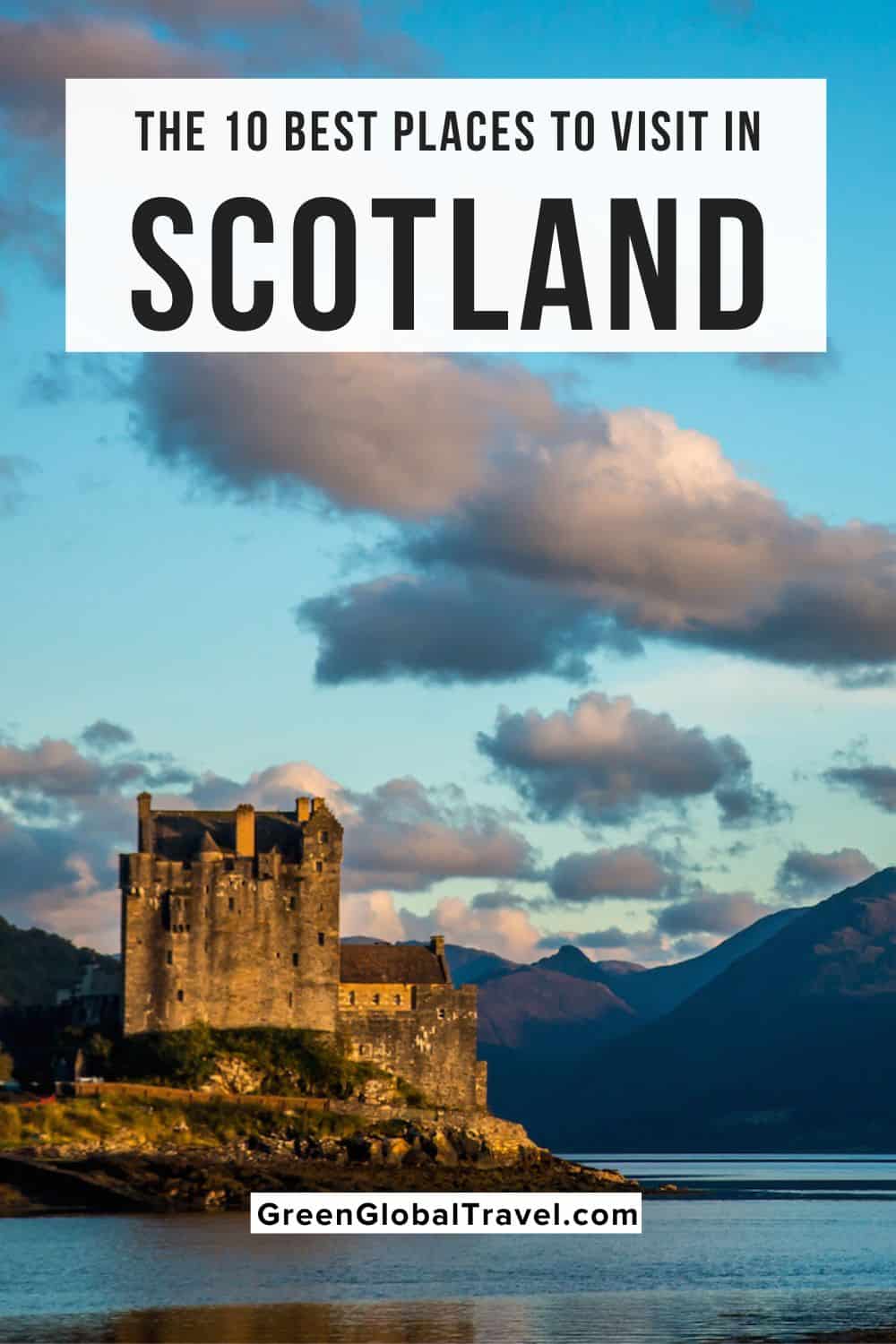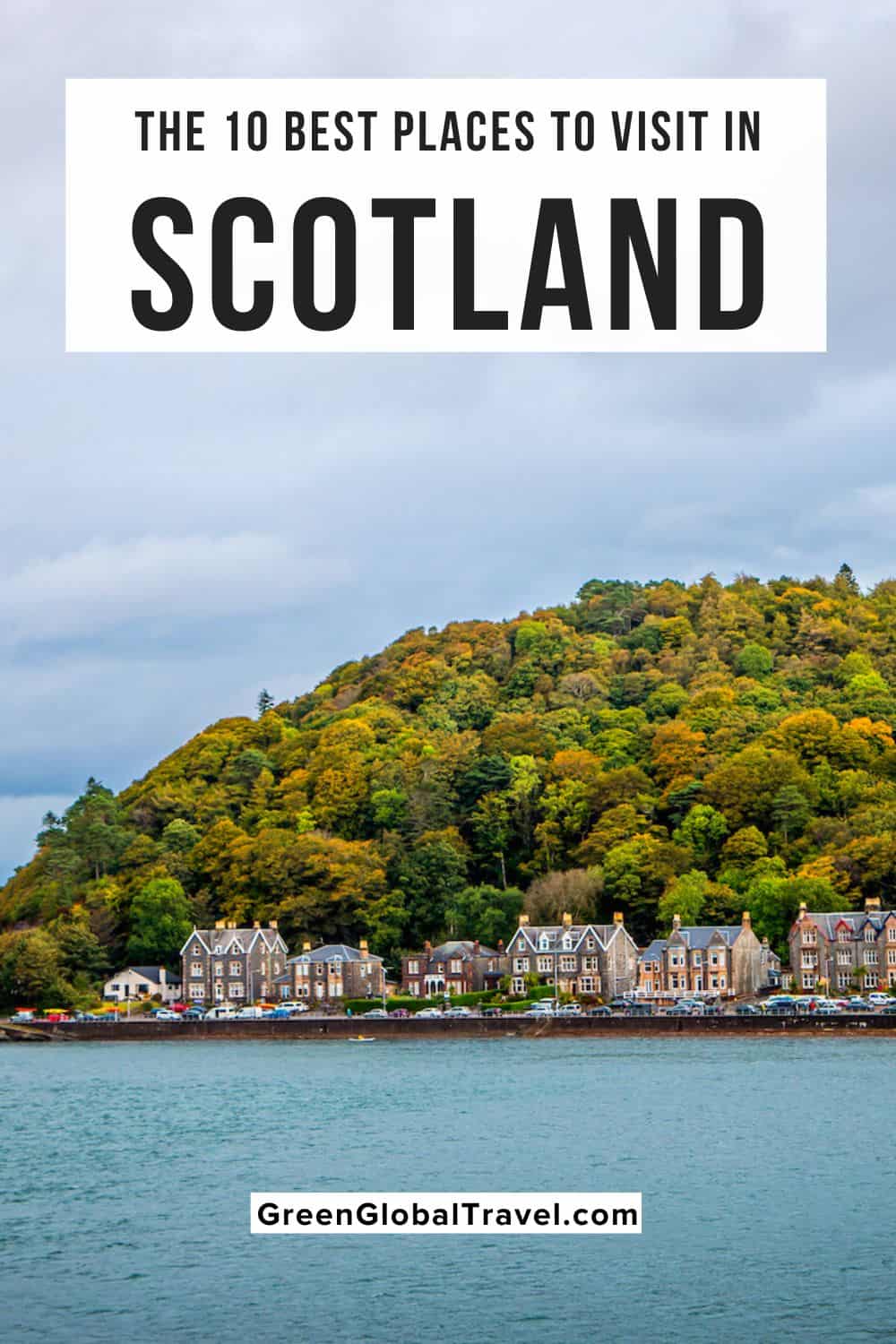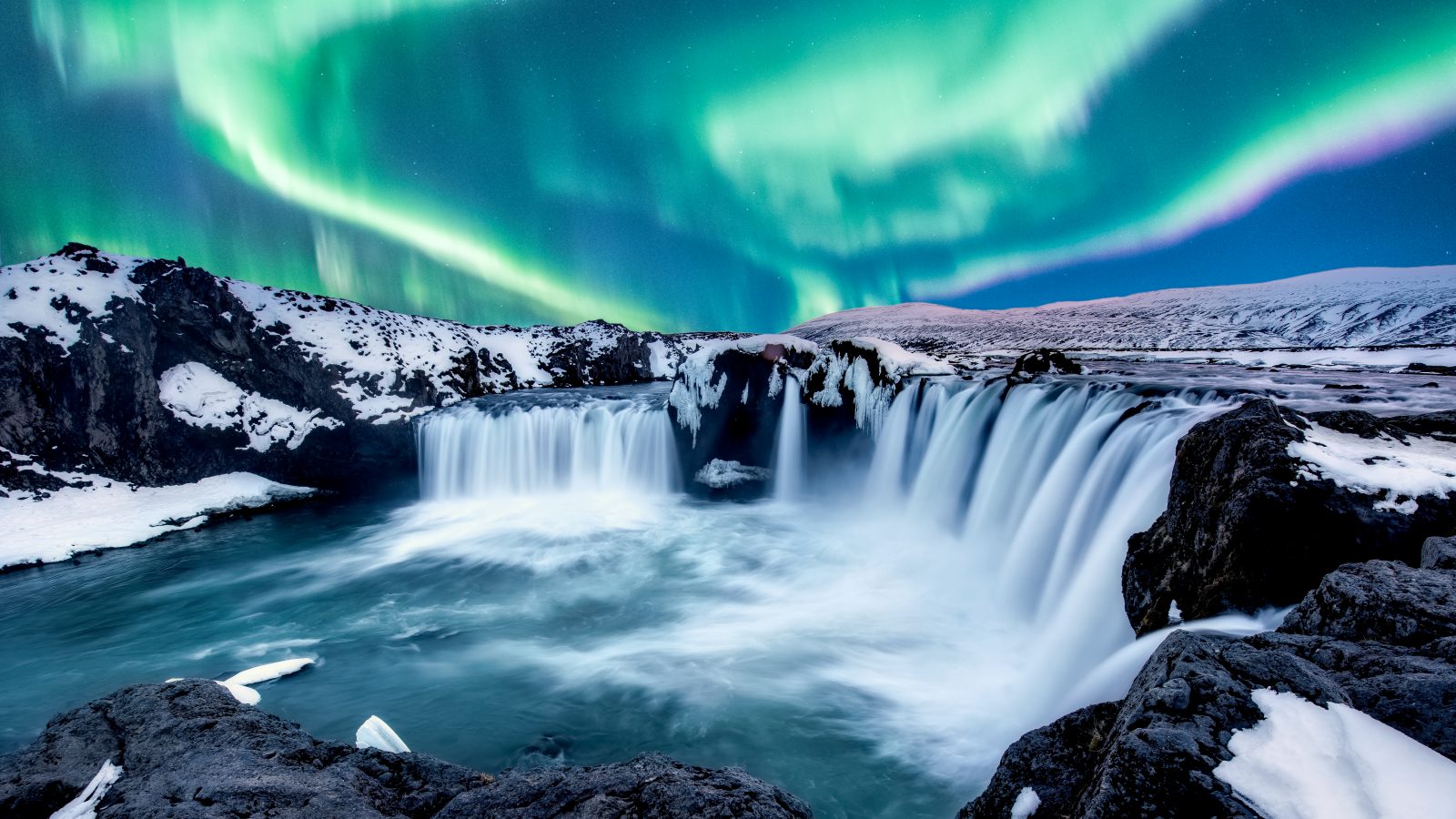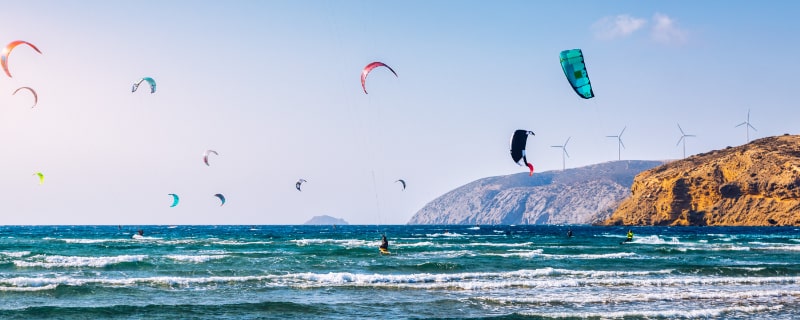The 10 Best Places to Visit in Scotland

To say that visiting Scotland was life-changing for me would be a vast understatement.
I’d spent years researching my family’s Scottish ancestry, learning that the Loves were a sept of Clan Mackinnon, with significant populations in Glasgow and the Scottish isles of Mull and Skye.
I’d previously gotten a chance to visit Edinburgh (where I interviewed Sean Connery!) and see major Scotland tourist attractions such as Edinburgh Castle, the Royal Mile, and Arthur’s Seat.
In addition to Edinburgh, our trip took us through the Scottish Highlands, including Loch Lomond National Park, Loch Ness, the breathtaking valley of Glencoe, and the famous Doune and Inveraray Castles.
We visited charming towns such as Inverness and Portree, explored the islands of the Inner Hebrides (including Iona, Mull, Skye, and Staffa), and learned more about Clan Mackinnon history via genealogical research at Armadale Castle.
Read on for our in-depth guide to the best places to visit in Scotland, which is designed to help you plan the perfect itinerary when you visit the Scottish Highlands and islands!
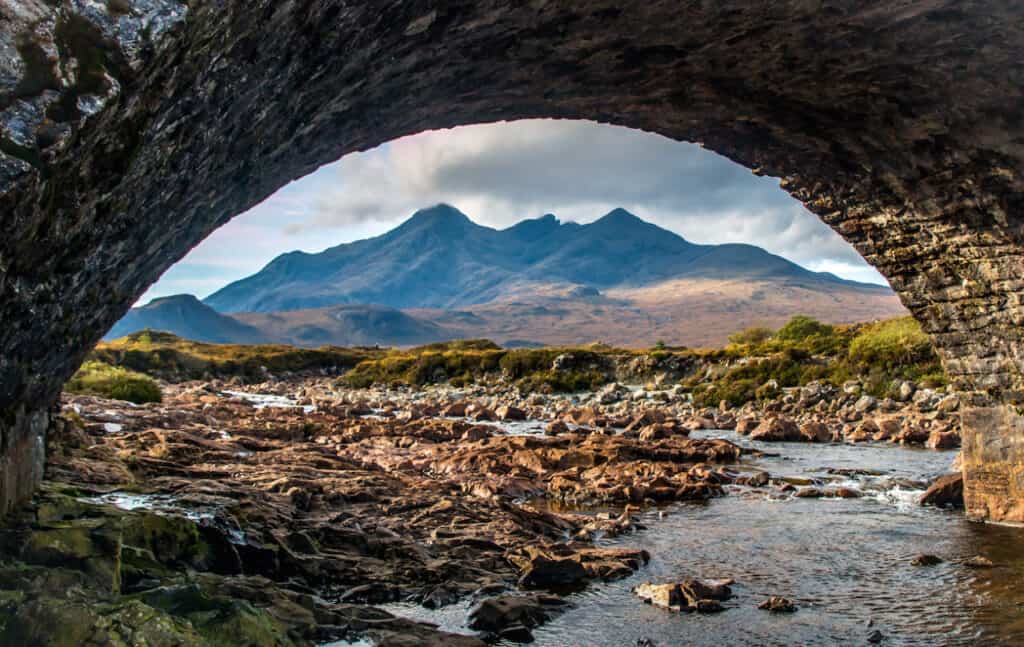
Best Places to Visit in Scotland Guide
- Cairngorms National Park
- Edinburgh
- Glasgow
- Iona
- Loch Lomond & the Trossachs National Park
- Loch Ness
- Oban
- Orkney
- Scottish Highlands
- Skye
READ MORE: The 20 Best Festivals in the World
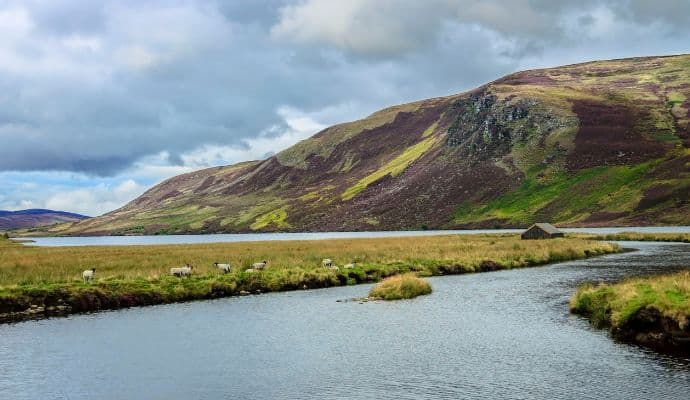
1. Cairngorms National Park
The largest of all national parks in the United Kingdom, Cairngorms National Park encompasses 1,748 square miles of spectacular landscapes in northeast Scotland.
The park’s Arctic-alpine ecosystem is home to three of the tallest mountains in the UK (with summits up to 4,265 feet), striking geological formations, and three major rivers.
Its semi-tundra moorland provides habitat for a diverse array of rare flora and fauna. Visitors may see Red Deer, Mountain Hares, semi-domesticated Reindeer, Ptarmigan, Golden Eagles, and many other birds.
Outdoor activities in Cairngorms include cycling, mountain biking, climbing, canoeing, and hiking two of Scotland’s Great Trails: the Cateran Trail and the Speyside Way.
Skiing and other winter sports are very popular here, as are attractions such as Glenmore Forest Park, the Highland Wildlife Park, the Frank Bruce Sculpture Trail, and the area’s breweries and distilleries.
READ MORE: The 25 Best National Parks in Africa for Wildlife Safaris
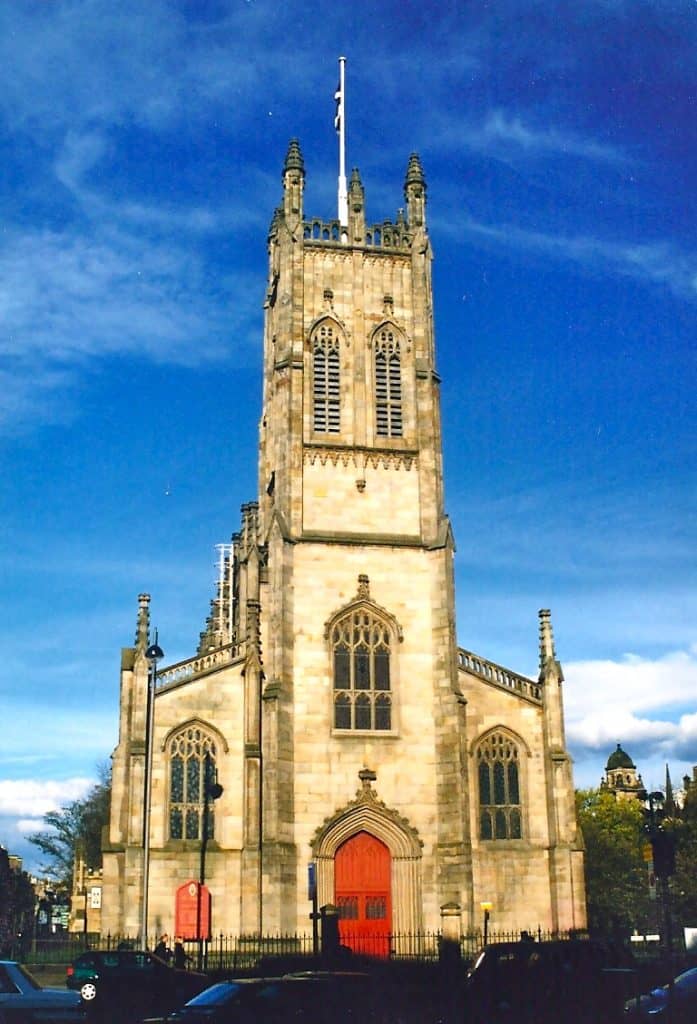
2. Edinburgh
Every first-timer’s trip to Scotland should begin in the bustling city of Edinburgh, which has been recognized as the capital of Scotland since at least the 15th century.
The ancient architecture of its medieval Old Town and the gardens and neoclassical buildings of its elegant New Town ensure a wealth of Edinburgh attractions for visitors to explore today.
We started at Edinburgh Castle, which was built in the 11th century. Highlights include a palace museum, bronze statues of William Wallace and Robert the Bruce, the Witches’ Memorial monument, Mills Mount Battery (where a cannon is fired 6 days a week), and Half Moon Battery.
Departing Castle Rock, you can walk the Royal Mile. Important historic sites along the way include Holyrood Abbey, the Sir Walter Scott Monument, the Canongate Kirk (where the Queen’s granddaughter got married), the Heart of Midlothian, and the Palace of Holyroodhouse.
Other fun things to do in Edinburgh include Auld Reekie’s Ghost Tours, playing golf at St. Andrews, and sampling the Scottish city’s excellent restaurant scene.
READ MORE: 10 Ancient Archaeological Sites For Your World Travel Bucket List
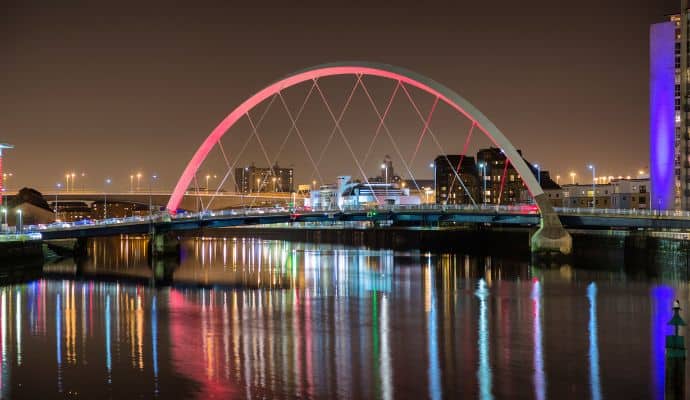
3. Glasgow
Located in the River Clyde, Glasgow is the port town where the highest concentration of my Scottish ancestors lived. It’s also the most populous city in Scotland, with over 1.8 million residents.
The city is famed for its stunning Victorian and art nouveau architecture, its historic legacy of shipbuilding, and its rich cultural heritage.
The National Theatre of Scotland, Scottish Ballet, and Scottish Opera are all based in Glasgow, which also boasts an exceptional food, art and music scene.
So naturally there’s an incredible array of things to do in Glasgow, from museums (Riverside Museum of Transport & Travel, Glasgow Science Centre) and historic sites (The Necropolis, Glasgow Cathedral) to visiting a diverse assortment of breweries, distilleries, and restaurants.
For nature lovers, there’s Pollok Country Park, Glasgow Botanic Gardens, Kelvingrove Park, and the historic Glasgow Green.
READ MORE: The 20 Best Cultural Festivals Around the World
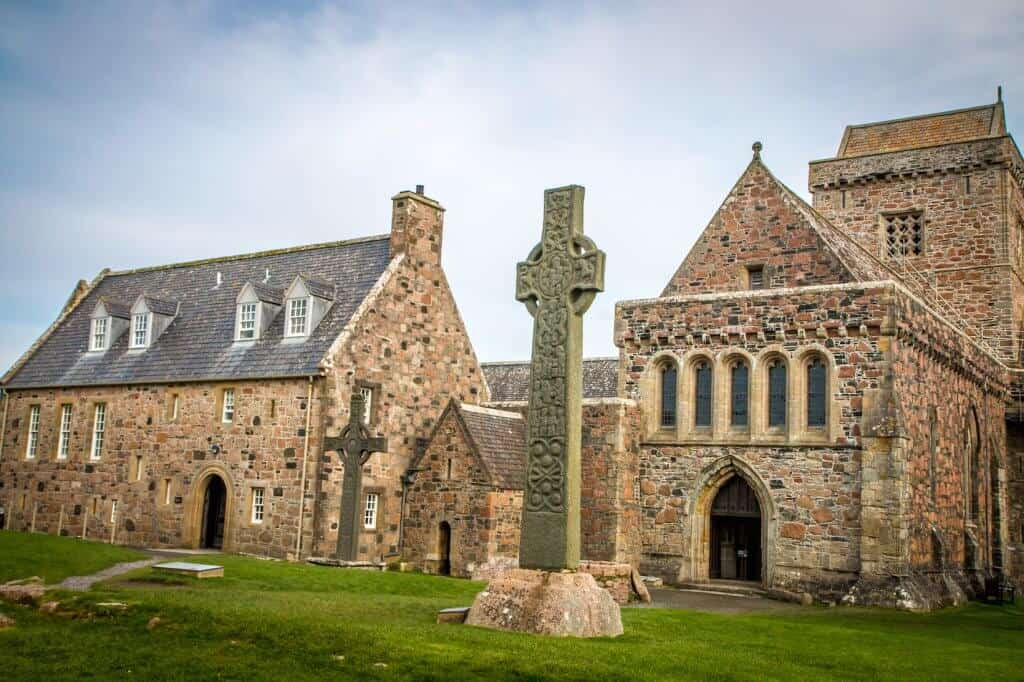
4. Iona
Located off the southwest coast of Mull in the Inner Hebrides chain of Scottish islands, Iona is a tiny island (less than 3.5 square miles) with a population of less than 200 people.
It’s not easy to get to: Visitors have to take a 50-minute ferry from Oban to Mull, catch a bus from the main Craignure ferry terminal to Fionnphort, then take a short 4-minute boat ride across the Iona Sound.
But there’s one magnificent attraction that makes this one of the best places to visit in Scotland: The Iona Abbey, which was founded in 563 by an Irish priest named Columba (who is now revered as a Saint).
Iona Abbey became the dominant institution behind the spread of Christianity among the Picts and Scots, and stands today as one of the region’s most elaborate and best-preserved abbeys from the Middle Ages.
There are countless highlights of this popular Christian pilgrimage, from remarkable architectural details and the 9th-century St Martin’s Cross to an ancient burial ground, the Rèilig Odhrain.
It is believed to contain the graves of 48 Scottish, 8 Norwegian, and 4 Irish kings, including Cináed mac Ailpín, a.k.a. Kenneth MacAlpin, the King of the Picts.
READ MORE: The 30 Best Exotic Islands to Visit
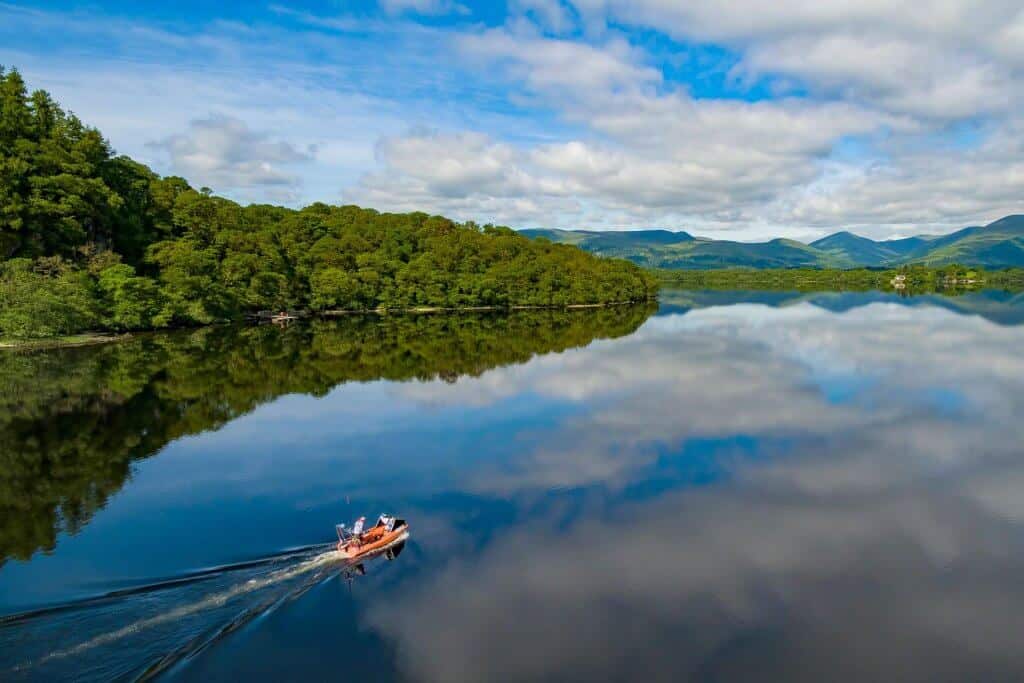
5. Loch Lomond & the Trossachs National Park
Measuring 22.6 miles long and 0.62 to 4.97 miles wide, Loch Lomond is the largest lake in Great Britain, and one of the 3 largest lakes in the UK.
Considered the boundary between the lowlands of Central Scotland and the Highlands, the 720-square mile Lock Lomond and the Trossochs National Park is the oldest of the national parks in Scotland.
With its location close to major cities like Stirling and Glasgow, this is one of the most popular Scottish attractions, drawing nearly 3 million visitors each year.
The park’s myriad wildlife habitats (including 22 large lochs and 50 rivers) are home to species such as Beavers, Golden Eagles, Osprey, Peregrine Falcons, Red Deer, Red Squirrels, and Scottish Wildcats.
There are loads of fun things to do in Loch Lomond & the Trossachs, including scenic boat rides, hiking the Great Trossachs Path (one of Scotland’s Great Trails), visiting the Birds of Prey and Sea Life Centres, the TreeZone Aerial Adventure Course, and water-based activities like fishing and water skiing.
READ MORE: 30 Cool & Weird Ocean Animals Around the World
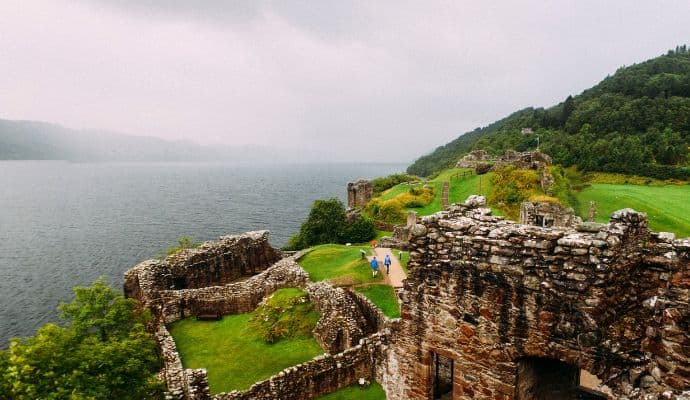
6. Loch Ness
A world-renowned attraction in the Scottish Highlands, Loch Ness is the 2nd largest lake in Scotland, stretching 23 miles south of Inverness. Fed by the River Ness, the lake reaches depths of 755 feet.
Local mythology suggests that the murky lake is home to the Loch Ness Monster, with reported sightings of the large, long-necked sea serpent dating back to the days of Saint Columba (circa 565 AD).
You don’t have to believe in the sensational cryptozoological folklore to appreciate the picturesque lake, which is surrounded by 9 charming villages. and the ancient ruins of Urquhart Castle.
When you’re trying to catch a glimpse of “Nessie,” other things to do at Loch Ness include exploring the ancient ruins of Urquhart Castle, Fort Augustus, and the Loch Ness Centre & Exhibition.
The latter is in the Village of Drumnadrochit, which is also a great place to take scenic boat rides or go on horseback riding tours.
READ MORE: The Norse Gods: An Intro to Viking Mythology
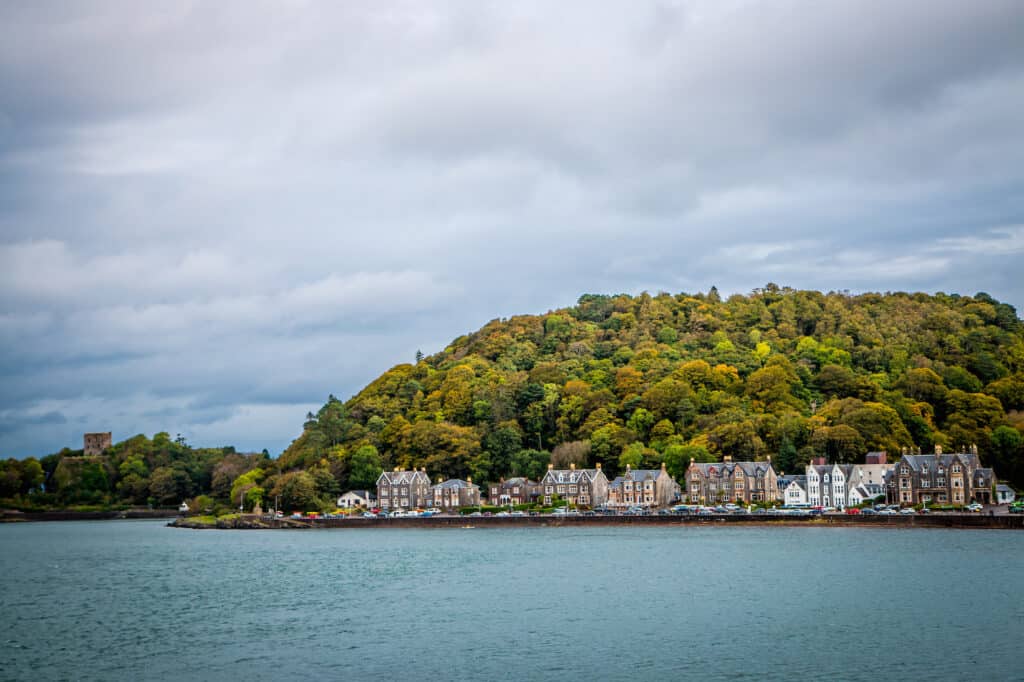
7. Oban
The average visitor might not consider the Gaelic town of Oban to be a must see in Scotland.
Located 37 miles northwest of Inveraray, the port town was merely an overnight stop on our tour before heading to the islands of Mull, Iona, and Staffa (which is home to stunning columnar basalt formations).
But the resort town is rich with history. There’s Dunollie Castle, which overlooks the bay and dates back to the Bronze Age. And the world-renowned Oban Distillery, which was founded before the town in 1794.
Other popular things to do in Oban include the Royal National Mòd (a celebration of Scottish Gaelic culture), the Argyllshire Gathering Highland Games, World Pipe Band Championships, visiting McCaig’s Tower, and taking day trips to the islands of the Inner Hebrides.
Oban is considered the “Seafood Capital of Scotland,” so the food scene there is also noteworthy.
READ MORE: Traditional Food Around the World: 30 Famous Dishes to Make
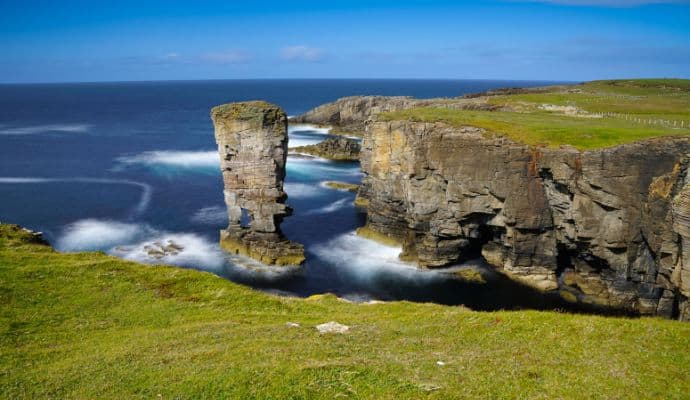
8. Orkney
Much like the Philippines or the Galapagos, Orkney is an exceptional archipelago of islands located off Scotland’s northeastern coast.
Part of Scotland’s Northern Isles, Orkney is located about 10 miles off the coast and consists of around 70 islands, of which only 20 are inhabited.
With a total land area of 380 square miles and a population of around 22,000, Orkney is a haven for nature lovers, history buffs, and anyone who craves that “getting away from it all” feeling.
Settled by Vikings circa 875 AD, these islands are home to some of the oldest Neolithic sites in Europe. Dating back some 5,000 years, the “Heart of Neolithic Orkney” is a protected UNESCO World Heritage Site, and truly a must-see.
Other things to do in Orkney include attending cultural festivals (St Magnus International Arts Festival, Orkney Folk Festival, etc) and taking boat tours to see the archipelago’s copious marine life. This includes tons of Dolphins, Seals, Sea Otters, Whales, and seabirds such as Puffins, Kittiwakes, and more.
READ MORE: The 20 Best Caribbean Islands to Visit (for Nature Lovers)
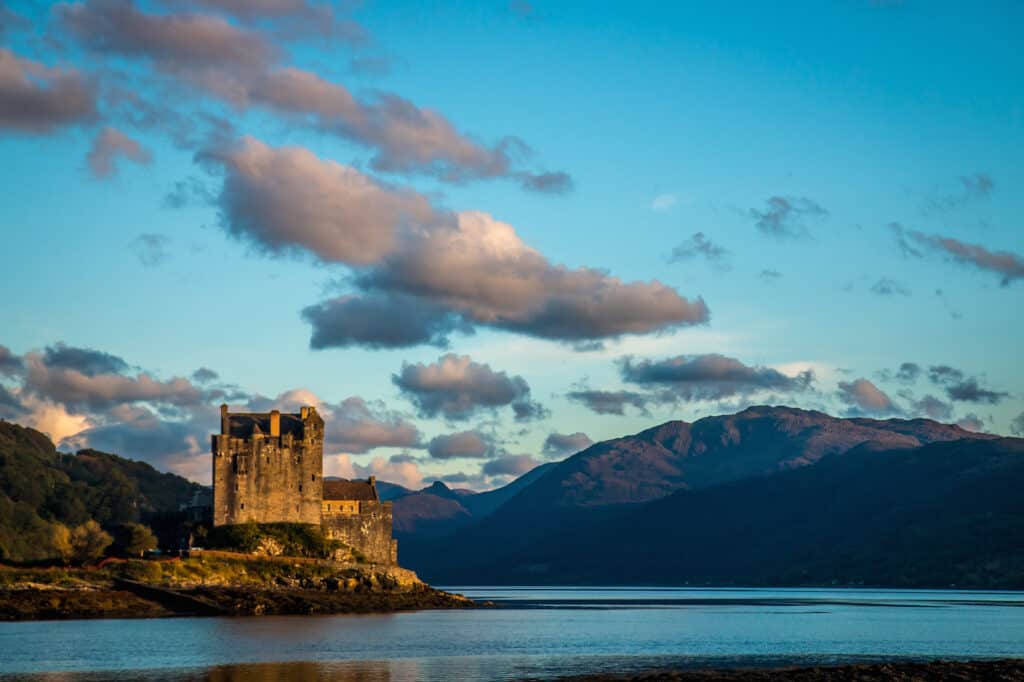
9. Scottish Highlands
There’s no denying the fact that the Highlands rank among the most beautiful places in Scotland, with their rolling hills, stunning rock formations, pine forests, ancient castles, and diverse wildlife.
Once you leave Edinburgh and head west, the dynamic landscape changes immediately, from the massive peaks of Ben Nevis (tallest mountain in the UK) to the fertile valley of Glencoe.
If you love water, this area is home to numerous waterfalls rushing down dramatic cliffs, not to mention two massive lakes, Loch Lomond and Loch Ness.
History buffs will enjoy visiting the ancient Doune Castle (a.k.a. made famous by Monty Python’s Holy Grail and Game of Thrones) and exploring Inveraray Castle (made famous by Downtown Abbey).
If you’re a fan of Outlander, you won’t want to miss the town of Inverness, where the bloody Battle of Culloden ended Scotland’s Jacobite rising of 1745.
READ MORE: Exploring Historic Doune Castle in the Scottish Highlands
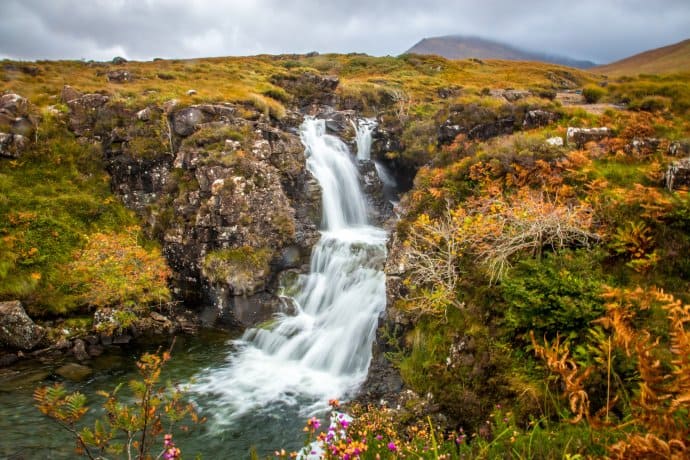
10. Skye
The Isle of Skye is the second largest island in Scotland, spanning 640 square miles off the nation’s west coast. Thanks to being featured on countless “Best Islands in the World” lists, it’s also the most popular.
There’s an incredibly diverse array of things to do on the Isle of Skye, including activities for avid hikers, families, foodies, history buffs, and nature lovers.
But it’s important to understand the negative impacts of mass tourism on the area, and plan accordingly if you want to avoid the crowds of peak summer travel to Europe.
For outdoor adventure, check out the Black Cuillin hills, the Five Sisters mountain range, impressive waterfalls at Kilt Rock and the Fairy Pools, and the breathtaking scenery of the Quirang (one of the most famous filming locations in Scotland).
In terms of man-made Isle of Skye attractions, don’t miss Armadale Castle, Dunvegan Castle, the charming town of Portree (Skye’s largest), and the Talisker Distillery. –by Bret Love; lead photo via Canva

